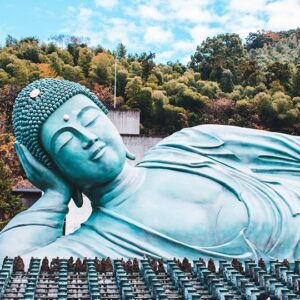 Before we get to answering your questions about meditation, I’ve got one for you: Why do people have so many questions about meditation when meditating is simply sitting and observing?
Before we get to answering your questions about meditation, I’ve got one for you: Why do people have so many questions about meditation when meditating is simply sitting and observing?
The simple answer is that the original purpose of meditation has largely been lost. Whilst answers may serve the mind’s thirst for knowledge and “need to know” attitude, meditation is a practice that untangles your attention from thoughts and into a state of pure Awareness.
So much confusion has arisen about meditation because its simplicity has been made complicated, primarily because the mind is still trying to get a hold on meditation.
There are now seemingly endless meditation techniques to choose from, each with its own unique intention and desired outcome. Suddenly a time that was meant for stillness, peace and neutral observation turns into a whole lot of trying.
Trying to get it right. Trying to be spiritual. Trying to hold your body in an uncomfortable position. Trying to stop/change thoughts. Trying to feel peaceful. Trying to achieve something. On and on and on…
It’s no wonder many of us finish a session feeling more stressed and uptight than when we started!
In reality, you don’t need to do anything – this is the most important thing to remember during meditation time!
Consider this: Are we Addicted to Trying?
Having said all of that, meditation questions are good. To grasp something at an intellectual level is not to be mocked. This level of understanding can be the starting point of a much deeper felt experience through the practice of meditation.
So, let’s delve in and look at what are the most common questions asked about meditation. Just as with commonly asked questions about life, meditation questions are endless. We’ve picked out the most helpful.
Note: Our intention here is to answer these questions from the standpoint of Insight Awareness Meditation (IAM) which is taught at Tushita Mystery School. This practice takes meditation back to its original roots, as lived and taught by Spiritual Master Sri Yanchiji at Tushita Hermitage.
Here are some useful links for further reading and understanding:
- What is a Mystery School? (+ Tushita Mystery School retreats)
- Tushita Hermitage & The Way of Life
- Who is Sri Yanchiji?
What is meditation? What is the purpose of meditation?
This seems like the most logical place to start as one of the most commonly asked questions. And, I’d like to throw in another question which precedes these two: What was the original concept and what were people hoping to achieve by it?
Originally, meditation was used as a way of uncovering and coming into relationship with Who You Really Are – pure Awareness. It is a time to allow quiet and stillness of the body and mind, so that awareness has a chance to come forward.
In other words, meditation is to become the impartial observer of oneself (of one’s thoughts & bodily sensations) through this non-judgemental, non-critical pure awareness state.
So, there isn’t so much something to “achieve” in meditation. Rather, it’s about dropping all expectations, all types of trying, to simply sit with yourself and observe what is in the present moment.
Whilst modern day meditation focuses mostly around sitting with the eyes closed, meditation, as originally practiced, would eventually expand in to every moment of life. Whether sitting with eyes open, laying, walking, talking, eating etc, your meditation practice – or holding your attention firmly in the pure awareness state – is to become a continuous one in daily life.
Interesting: Yoga is also a form of moving meditation, with the purpose of aligning mind, body and breath into mindful presence.
How do you meditate? What is a simple way to meditate?
It all starts with taking the time and space for yourself so that you can participate in meditation. For many, this is believed to be irresponsible, yet that is far from the truth! In fact, taking the time to understand Who You Really Are is the most responsible thing you can do.
The simple way to begin meditation is by sitting with eyes closed. All it requires is a quiet, comfortable setting where you will not be disturbed. The length of time depends on how long feels right for you at the time of sitting. But generally, start small (5-10minutes) and extend accordingly.
As stated previously, meditation – and for the purpose of this article, Insight Awareness Meditation (IAM) – is less about do-ing and more about be-ing.
It’s not about sitting in the correct posture or manipulating your breath. Nor is the goal to stop thinking or feel a certain sensation.
It’s about letting all of that go. It’s a time dedicated to simply be. To allow your “inner teacher” to deliver all of the answers already within.
The breath can be a wonderful tool for anchoring your attention, yet be mindful that you don’t try and change it in any way – let it be as it is. Let the thoughts be as they are. Let the body feel as it does. Simply notice.
Read: Inspiration for Boring Meditation – ways to generate more motivation to meditate.
Lastly, following a daily meditation practice is one thing we suggest. Why should we meditate daily? To help strengthen our awareness and bring us closer to the present.
Is it possible to learn meditation on your own? How do I meditate being a beginner?
You may find it supportive to begin your meditation journey in a group setting by joining a meditation retreat, or at least with someone who can hold guided meditations for the first couple of sessions. Or perhaps follow a meditation app or join online meditation. But by no means is this a requirement to meditate.
Having read the answer to “how do you meditate” above, hopefully you’ve begun to see that there really isn’t a thing to learn as such. It’s more about allowing yourself to observe what already is with curiosity and wonder.
Therefore, yes, it is possible to meditate on your own.
Read: Experiencing Life more Lucidly through Silent Meditation
What are some best practices for meditation?
If what you’ve read so far intrigues you and you’d like to take steps towards uncovering Who You Really Are, then we encourage you to consider joining one of our Silent Insight Awareness Meditation (IAM) retreats.
Once again, IAM Meditation is a practice which takes meditation back to its roots, to become the impartial observer of oneself in a supportive environment led by trained teachers and students of Tushita Hermitage.
“This means not trying to stop thoughts and sensations but rather to observe these thoughts and sensations without interpretations – in other words, without judgements. We learn to simply observe what is happening whether it is good or bad, comfortable or uncomfortable, without putting a meaning on it, without imposing a goal or outcome on it.”
Find out more about Insight Awareness Meditation and discover upcoming IAM Retreats at Tushita Mystery School.
What meditation is best for me?
This can only really be answered by You.
The best way to find out is to “try” a meditation technique that you are drawn to and see if it feels right. We understand that there are endless opportunities at present, and it can be overwhelming. Part of the process is trial and error, yet ultimately, any time dedicated to spending time with your inner world is beneficial.
There are plenty of meditation tips and meditation books out there to quench your curiosity.
What are the benefits of meditation?
First and foremost, meditation helps to bring you closer to your inner teacher, to your Self. Some other things you may benefit from are:
- Clarity, focus and attention of mind
- Peace of mind and within the body
- Relaxation
- A life skill that can be used easily for the rest of your life!
Read: Strengthen Self-Understanding through Journaling
How do I know if I am doing the meditation correctly?
If there is any resistance, or need to change, whatever it is you are observing within yourself, then you are not resting peacefully in Awareness.
How does meditation affect someone’s personality?
Fun question… and there is only one way to find out…!
From my own personal experience, meditation has strengthened my personality because my ego has gradually quietened down. We’re all born with a unique personality, so this question cannot possibly be answered as a “one size fits all”. There’s something to think about.
What about… questions to ask during meditation? Questions to ask after meditating?
From the standpoint of Insight Awareness Meditation, we do not encourage you to ask questions during meditation. Whilst your thoughts will come and go and they may include questions, this is different to consciously bringing questions to mind as you sit. Thinking about asking questions (during a meditation session) can be a distraction from merely observing one’s self.
After meditation, it is likely that you may have questions arise, and there is nothing wrong with that. And! It can be interesting to simply observe these too, without necessarily voicing them or giving them any analytic attention.
Should you attend a Silent IAM Retreat, there is dedicated time for asking any burning questions, plus the option of 1-1 time with a teacher. Writing in a journal is also encouraged and is a great way of moving mental activity that supports further self-understanding.
Curious: Are there certain questions to ask a meditation teacher? No, there are no right or wrong questions to ask.
Left with unanswered questions about meditation? Or did we miss some facts about meditation you’d like to share? How has meditation changed your life? We’d love to read your comments below.
Who wrote this piece? Tushita Mystery School blogs are written by a number of Students at the Tushita Hermitage. Their anonymity supports their self-forgetting practice.
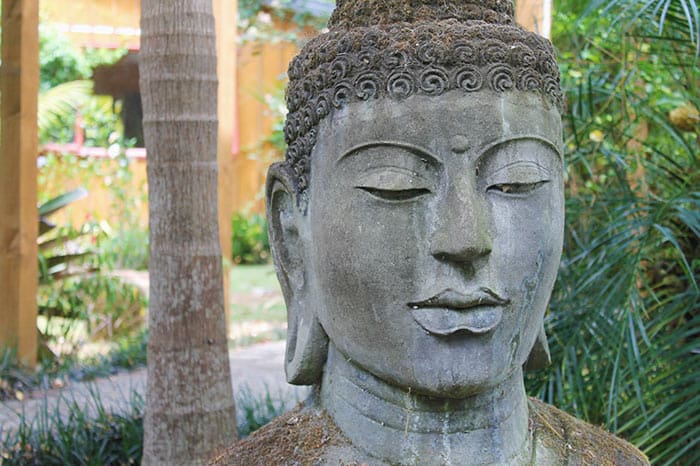
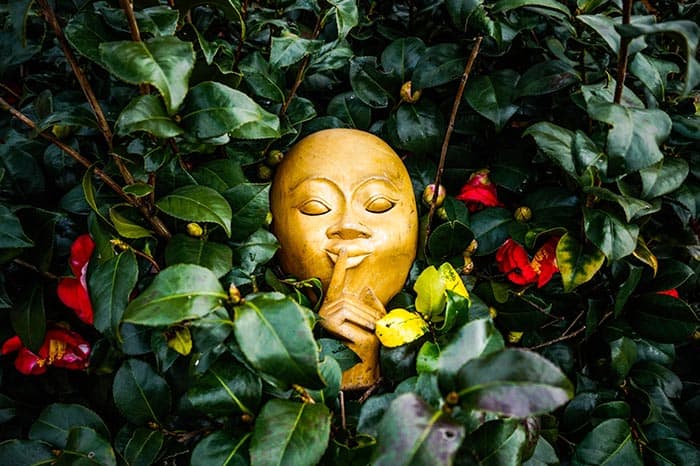
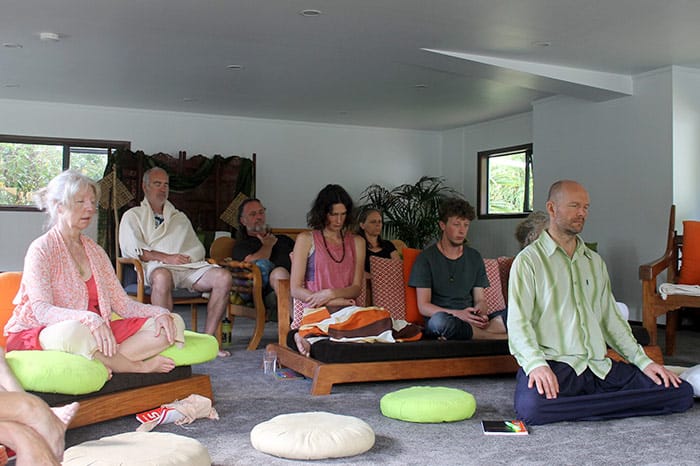
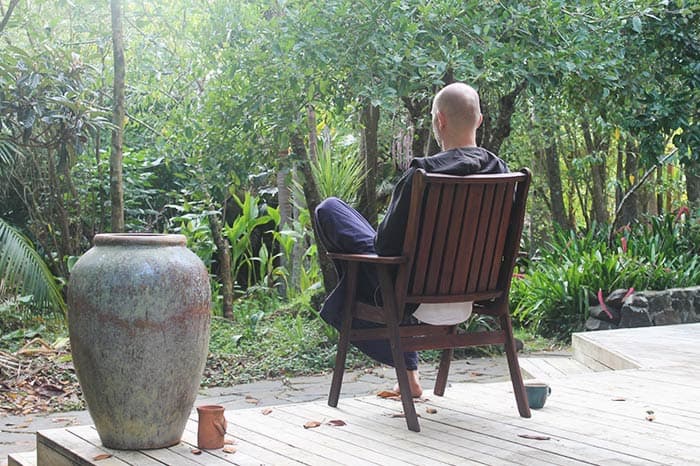
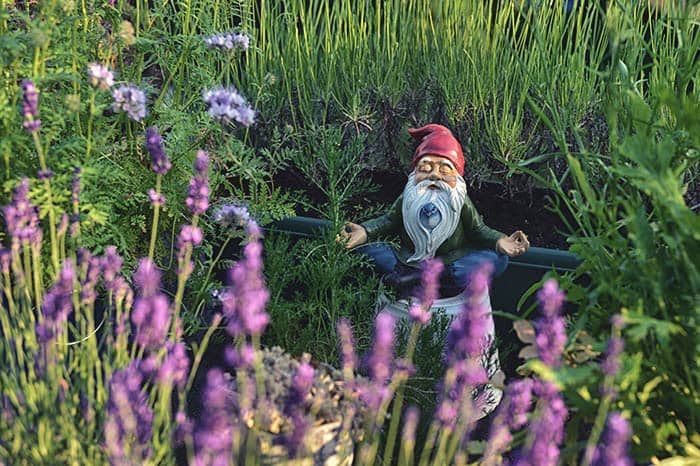


Leave a Reply